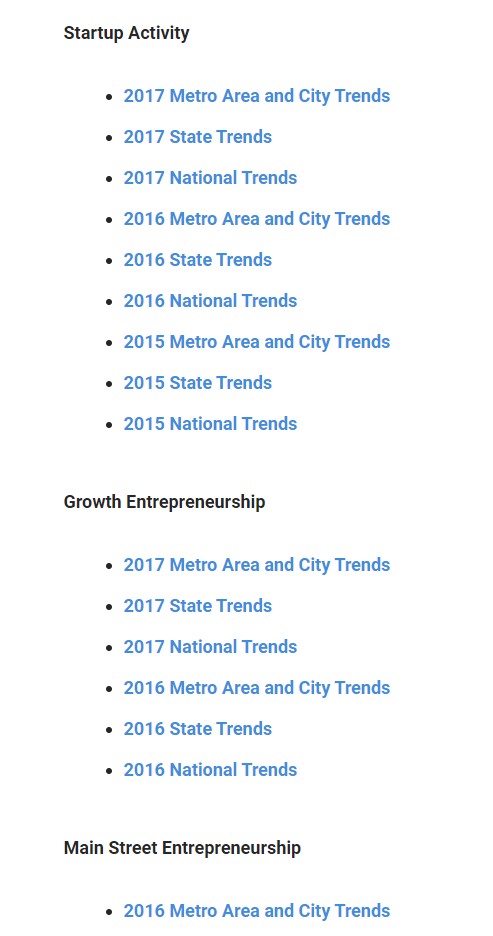The Kauffman Index of Entrepreneurship was “an early indicator for entrepreneurship in the United States, used by entrepreneurs and policymakers, from the federal to state and local levels. It tracked one of the earliest measures of business creation: when and how many people first started working for themselves, becoming entrepreneurs”. Also known as the Kauffman Index of Entrepreneurial Activity, this database spanned the period from 1994 to 2014. The index has been used by policy-makers as well as academic scholars to derive insights into new venturing activity in the United States.
The index was relaunched in 2015 to focus on entrepreneurial outcomes – as opposed to entrepreneurial inputs – and track actual results of entrepreneurial activity, like new companies and growth rates. This continued till 2017 after which the index was retired and replaced with the Kauffman Indicators of Entrepreneurship. This avatar of the dataset was structured to cover three types of business formation activity at three levels of geography (metro-city, state, and national):
- Startup entrepreneurship
- Growth entrepreneurship
- Main Street entrepreneurship

Access to Kauffman Index of Entrepreneurial Activity
The Historical Kauffman Index data is freely available and has been used in the following work(s) of entrepreneurship research:
- Deskins, J., & Ross, A. (2016). Economic Freedom and Racial Differences in Entrepreneurship. Public Finance Review, 46(2), 177–204. https://doi.org/10.1177/1091142116671804